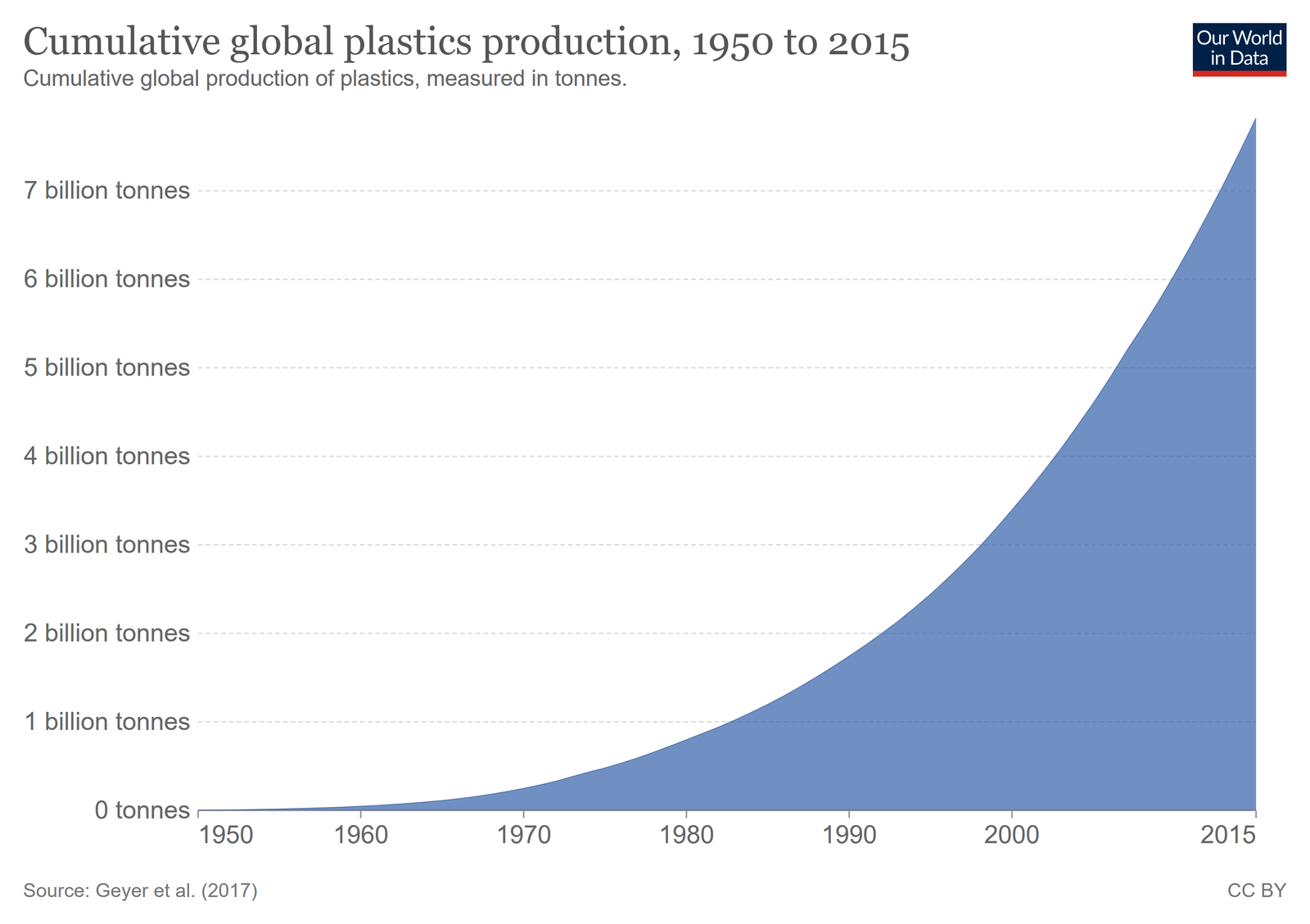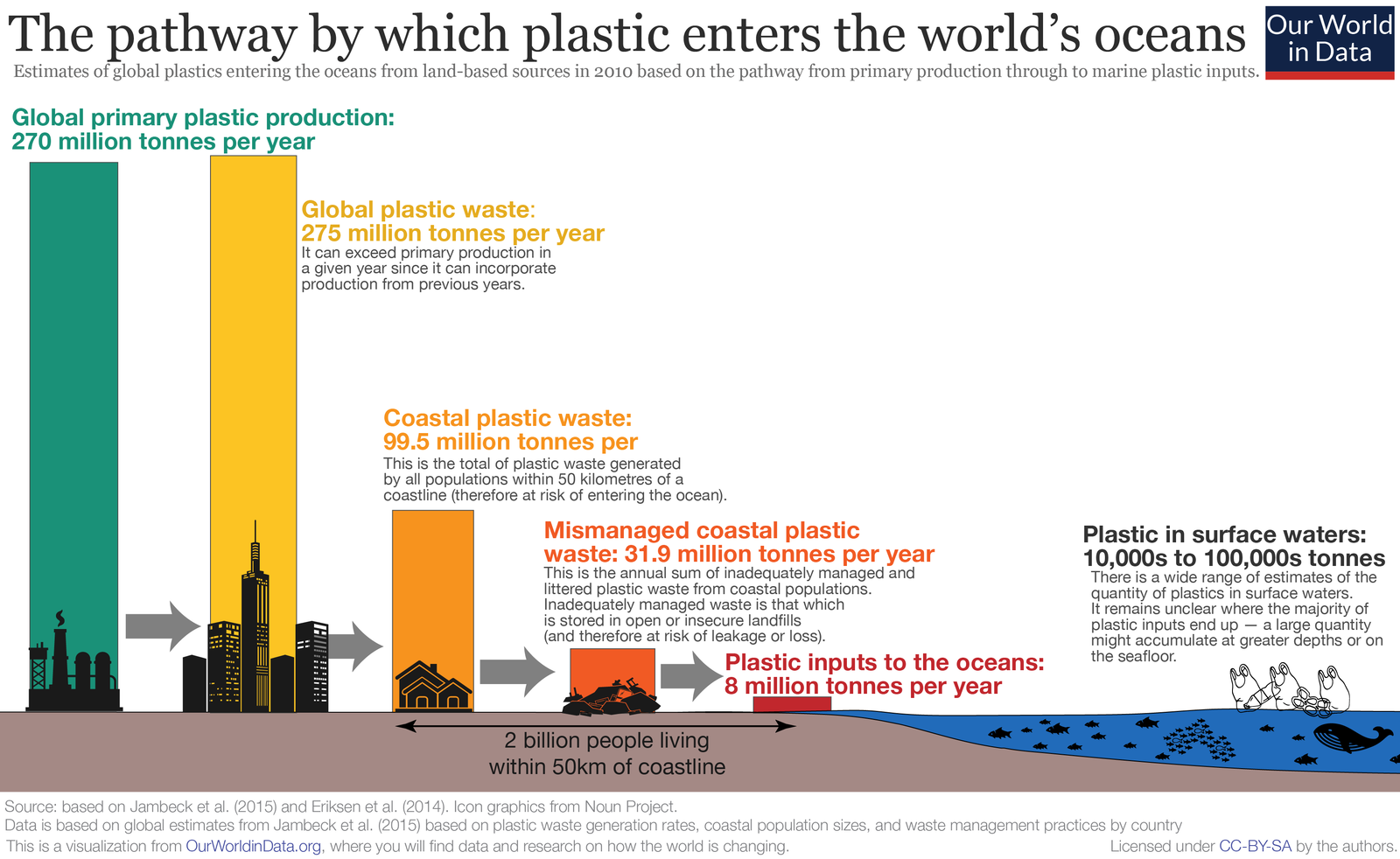Plastic Pollution: the unfriendly army we're raising


· 3 min read
“It is just one plastic bottle, said 8 million people"
– Ben Curtis
According to statistics, plastic production has risen from 1 billion tonnes in the early 1980s to a landmark of 7 billion tonnes in the year 2015 and over 8 billion tonnes before 2017 which surpassed the world population of 7.51 billion in 2017 (UN.org).

Out of concern for human population explosion, different control measures were introduced yet an army of plastic population leading to plastic pollution would soon jeopardize these efforts and deleteriously subdue human population with time.
Plastic pollution started as an insignificant body pain but gradually became a hemorrhagic fever and now becoming a pandemic which will affect the world more than Covid-19.
A quick reminder, the ocean is responsible for at least 50% of the oxygen we breathe (National Ocean Science, 2020), it is important to note that this ubiquitous resource is under threat; the marine ecosystem is besieged by our unmindful and arbitrarily disposing of plastics. At the heat of the Covid-19 pandemic, global health centers were stretched beyond their limits as there were concerns for ventilators shortage? Pitiful, it was!
Here come the likely daring agitations for everyone? What happens when the ocean’s supply of oxygen reduces to 10%?
Would over 8 billion people scuttle for oxygen? Thinking further, other nature’s oxygen providers and or partners of the ocean (tress) are continuously under attack year in year out, reducing and weakening the “oxygen bank”!
How do we all survive when oxygen supply deficit? Will each person be required to get a ventilator to be healthy? Is the whole world ready to go through another phase of horrors when in fact, it could be averted? By then, the whole world would be brought to another level where nobody bothers about economic recession, food security, racial discrimination and the world’s dominating power as the insignificant thin air would be scuttled after.
The next set of big questions:
What happens to the aquatic lives feeding on these plastics?
What satisfaction would humans derive from consuming contaminated aquatic resources? Our badge of honor for irrationally raising a global army of plastics is imminent upon us. Facts:
According to yourbottlesmeansjob.com, there are 36,000 (16 oz) plastic bottles in one ton, i.e. 16 ounce = 453.59gram. This implies that there are 596,000 ounces of plastic bottles equivalent to 16 kg of plastic bottles in one ton.
Rounding off, the ocean houses at least 8 million tonnes of plastic per year (Our World in Data). Imagine the numbers of bottles littering the Oceans and their inevitable consequences on our dear planet earth?

Despite the earth’s water interference in almost all of human affairs (food chain, Oil production and many more) we’re raising an army that will destabilize planet earth!
Say no to plastic pollution, we don’t have a planet b!
Future Thought Leaders is a democratic space presenting the thoughts and opinions of rising Energy & Sustainability writers, their opinions do not necessarily represent those of illuminem.
Our world in Data
Gokul Shekar

Effects · Climate Change
illuminem briefings

Mitigation · Climate Change
illuminem briefings

Climate Change · Environmental Sustainability
Financial Times

Carbon Market · Public Governance
The Guardian

Agriculture · Climate Change
Euronews

Climate Change · Effects